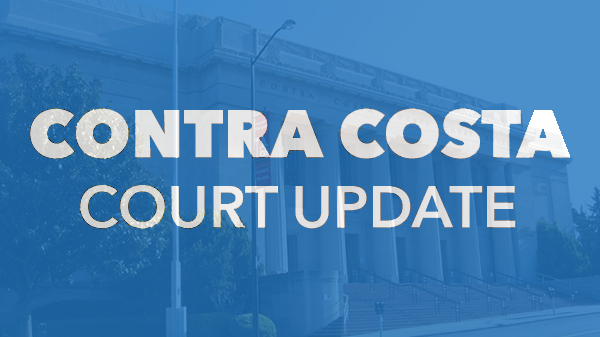Issued: 4/27/2020. Please see prior update posted 4/24/2020 for additional information. The update below only summarizes updated and new procedures since the last-published amendment.
- Court Hearings
- Hearings on requests for Domestic Violence Restraining Orders filed during the Court closure period will be scheduled within 90 days of the filing of the request or within 90 days of a hearing date currently set to occur during the court closure unless a party demonstrates extraordinary circumstances necessitating an earlier hearing date. These hearings will be conducted via Zoom or an alternative videoconferencing program.
- All non-emergency Requests for Orders filed during the Court closure period will be scheduled at least 90 days from the date of filing.
- All matters scheduled to be heard during the Court closure period will not be rescheduled until after the Court resumes normal operations.
- Department 29 will hear cases on Mondays
- Department 32 will hear cases on Tuesdays
- Department 18 will hear cases on Wednesdays, Thursdays, and Fridays
- Department 52 will hear cases Monday through Thursday
- Mediation
- Mediation for child custody/visitation disputes will be available in emergency situations. Mediators may provide recommendations if the mediation session is the result of ex parte temporary emergency orders, restraining orders, or submitted stipulated requests for orders.
- All mediation appointments affected by the court closure will be rescheduled by Family Court Services (FCS). FCS will initiate contact.
- Informal Case Management Conferences and Settlement Conferences
- Judges are willing to hold informal Case Management Conferences (CMCs) and Settlement Conferences during the Court closure period if both parties agree in writing to do so. The purpose of these informal hearings is to assist parties in resolving disputed issues.
- Parties who have custody/visitation disputes are not eligible to participate in these informal hearings unless they have previously participated in Tier I mediation.
- An informal CMC or Settlement Conference can be scheduled by emailing the department to which the matter is assigned. A request must provide following information:
- Case name, number, and issues to be discussed
- A signed stipulation (agreement) for the informal hearing to occur
- Email and phone contact for the parties and/or attorneys
- Clarification as to whether the hearing is by telephone or videoconference
- Request for interpreter if applicable
- Submitting Matters on the Pleadings (i.e. Without a Hearing)
- All hearings, except for restraining orders, calendared to be heard during the court closure period and for 30 calendar days after the end of the court closure period may be submitted on the filed documents. This means that the judge will review the documents filed by the Parties and issue a written ruling based on what has been filed and without a hearing (i.e. no oral argument). This requires a written agreement between the parties and/or attorneys on a specific form, which will be provided by the assigned department upon request.
- A party may submit an additional 10 pages of pleadings, including declarations and exhibits concurrently with the agreement to submit the matter on the pleadings. These documents must be attached to the stipulation and shared with the other party prior to submission to the Court.
- Both Parties must have filed and served a current Income and Expense Declaration with proof of income attached if the matter involves support.
- Mediation is still required for matters with contested custody and visitation issues.
View the complete set of the Second Amended Emergency Local Rules ›
